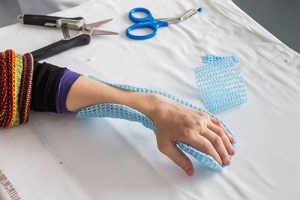Effective Tools to Reduce Inflammatory Conditions

Flexible and hard splints can help patients with psoriatic arthritis and joint disease reduce pain and inflammation if medication does not provide adequate relief. Splints for individuals with psoriatic arthritis are primarily used for the fingers and wrists, rheumatologists say, but can be customized for knees and elbows.
“One of the chief advantages of splints is they don’t cause side effects and are relatively inexpensive compared with the long-term use of biologics,” says Jay Doss, MD, a Duke rheumatologist. “Every patient presents with distinctive inflammatory conditions, so splints are not for everyone.”
Splinting has traditionally been used for conditions such as osteoarthritis as well as orthopaedic conditions, Doss says, but increasing diagnoses of inflammatory rheumatologic conditions have renewed awareness of splints among physicians treating the conditions.
Online publications such as Everyday Health, which produces physician-reviewed content, have published articles highlighting the use of splints for inflammatory disease conditions.
“Splints are probably underused slightly, though no rheumatologist is under the delusion that a splint is going to alter the course of an inflammatory disease,” Doss says.
For a patient with chronic joint pain, however, a splint could help. Doss cautioned that custom-made splints require design expertise that may not be available in a rheumatologist practice.
“Often in US Veterans Affairs medical centers, we find sophisticated splint-crafting skills,” he says. “It’s important to match the splint to the inflammatory condition. The success of the splint depends on proper design and positioning.”
Soft, flexible casting is generally preferred because rheumatologists encourage exercise and joint motion for all patients.